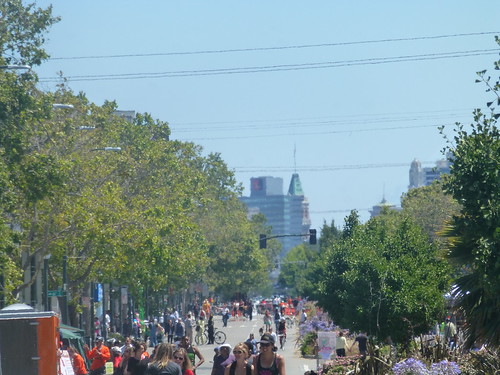
Following is largely an update of my letter to Jean Quan four years ago. Big differences: I voted for you, and both my and general expectations for your term are high.
Crime and policing are still where Oakland does worst relative to other cities, and where it can improve the most through action by city government. (It’s easy to make the case other problems are bigger, e.g., poverty, infrastructure, housing, finances, education, corruption…but many cities are worse off than Oakland on multiple of these, there’s less any city government can do on its own to turn these around, and few if any cities have staged big turnarounds in these areas…but many cities have on crime and policing.)
In order to avoid a strong challenge from the left during your term and in the next election, you must prioritize policing quality (both in terms of solving crimes and zero tolerance for cops who commit crimes and their supervisors) above quantity of cops. In order to avoid a strong challenge from the right, crime must go down. I suspect these two necessities are compatible, and suspect you might think so too (or I wouldn’t have voted for you). But now you have to act.
A sure signal of failure to me will be if you blame criminals, drugs, federal oversight, guns, or protesters — these elements are not under your control — and the best way to address them is — fix the OPD. Nearby and substantially poorer Richmond seems to be setting a fine example. If chief Sean Whent isn’t up to the job of fixing the OPD (I hope he is), how about hiring Richmond police chief Chris Magnus? On addressing protesters, Oakland could even take a lesson from Nashville, which as far as I know has vastly less experience with large protests.
I suspect that short-term city finances do not look as bad as they did four years ago due to the regional economy, but long-term (or even next recession) they are dire. I have very low expectation of any substantial improvement in long-term outlook, but good decisions on development and transportation would help. In general the Strong Towns approach favoring narrow streets and incremental, financially sustainable development over big roads and heavily subsidized big begs seems applicable to infill development, even though that site’s main target seems to be jurisdictions still doing green field development. Don’t bet on retail or sports teams. Do eliminate gratis parking, remove 980, and otherwise prepare Oakland to exploit rather than be exploited by the great urban reconfiguration of the 21st century — self-driving vehicles (LA’s mayor is at least talking about this).
On the city council you’ve been the internal champion for transparency and open government. Please continue on that path, rather than pivoting away from real open government, as some do when they move to the executive. Even better would be to make Oakland city government a leader in open source software procurement. Cities are terribly ill-coordinated on software procurement and development, which presently makes them subject to vendor lock-in and high costs, but as more infrastructure is mediated by software, will make their citizens less free.
Finally, do everything in your power and more to welcome, protect, and empower non-U.S. citizen residents, visitors, and workers in Oakland, and to frustrate the institutions of international apartheid and inflame their apologists, from the purely practical such as running the city well (as Jane Jacobs pointed out long ago, working cities are where strangers add to rather than threaten each other’s lives) to the largely expressive such as encouraging non-citizens to vote.
Here’s to great outcomes for Oakland, and your incredible success as mayor!
Mike Linksvayer
Golden Gate District, Oakland
